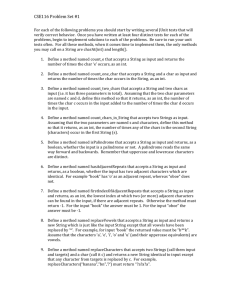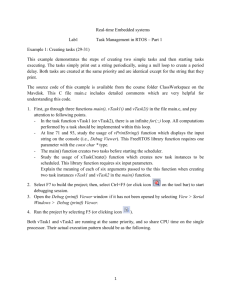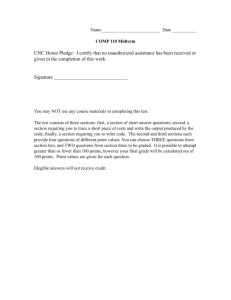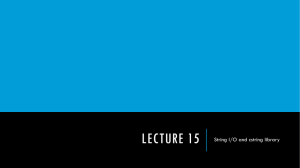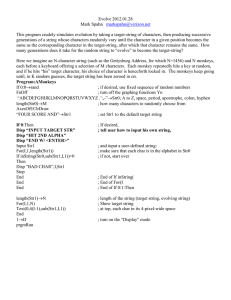IC221 System Programming Spring 2015 NAME:__________________________ COLLABORATOR(S):__________________________
advertisement
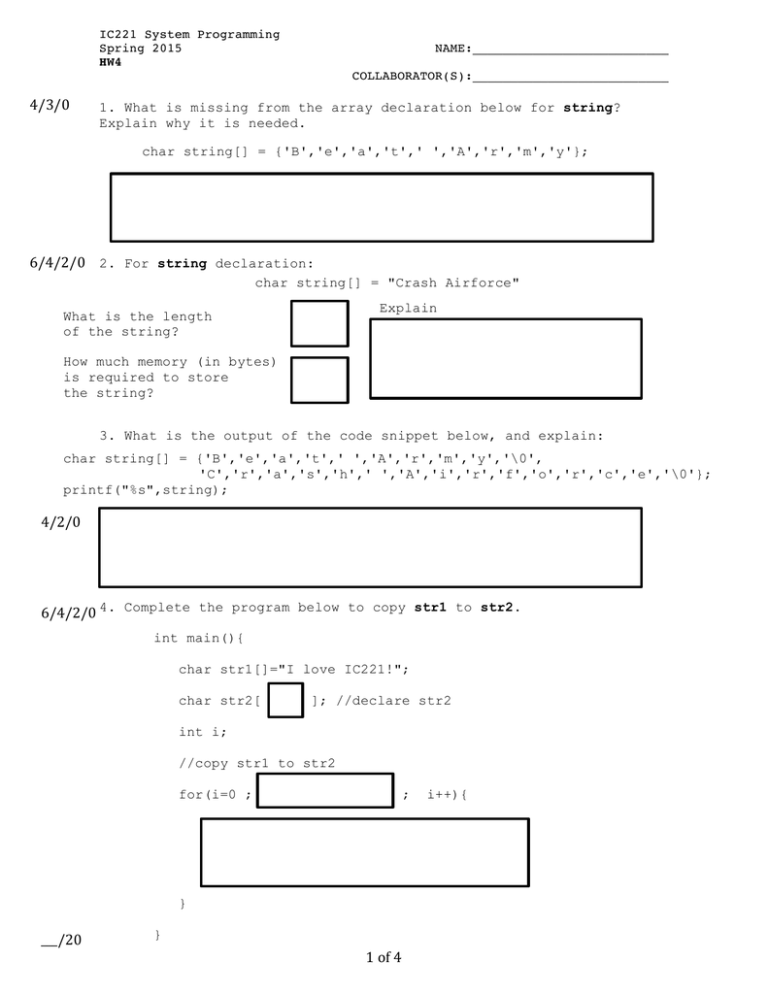
IC221 System Programming
Spring 2015
HW4
4/3/0 NAME:__________________________
COLLABORATOR(S):__________________________
1. What is missing from the array declaration below for string?
Explain why it is needed.
char string[] = {'B','e','a','t',' ','A','r','m','y'};
6/4/2/0 2. For string declaration:
char string[] = "Crash Airforce"
Explain
What is the length
of the string?
How much memory (in bytes)
is required to store
the string?
3. What is the output of the code snippet below, and explain:
char string[] = {'B','e','a','t',' ','A','r','m','y','\0',
'C','r','a','s','h',' ','A','i','r','f','o','r','c','e','\0'};
printf("%s",string);
4/2/0 adfadfadf
4. Complete the program below to copy the string
6/4/2/0 4. Complete the program below to copy str1 to str2.
int main(){
char str1[]="I love IC221!";
char str2[
]; //declare str2
int i;
//copy str1 to str2
for(i=0 ;
;
}
___/20 }
1 of 4 i++){
NAME: __________________________ 5. Use the Unix manual pages to look and describe the following
string.h library functions and its arguments:
4/2/0 a) strcpy
(
)
b) strncpy (
)
c) strchr
(
)
4/2/0 d) strrchr (
)
4/2/0 e) strcat
(
)
4/2/0 f) strncat (
)
4/2/0 g) strfry
)
4/2/0 4/2/0 (
2/1/0 6. For the string library functions
contain an “n” as in strncpy(),
explain why specify the length of the
destination string is important?
___/30 2 of 4 NAME: __________________________ 4/2/0 7. What is the output of the following program?
int main(){
int darray[][4] = {{1,
{1,
{2,
{3,
9,
8,
0,
4,
8,
9,
1,
5,
4},
4},
7},
8}};
int * p = &(darray[1]);
printf("%d",p[2]);
}
7/5/3/0 8. For the above program, complete the stack diagram. Fill in
missing values and data segments.
darray
1
9
8
4
p 5/3/0 9. Convert the following double array dereference with [ ] to one
without [ ]
darray[3][0]
8/6/3/0 10. Write a for loop to iterate over the darray to print a 4x4 grid
of numbers, much like it is presented in question 7 above.
___/25 3 of 4 NAME: __________________________ 4/2/0 11. Describe the following type declaration with respect to pointers
and arrays.
char * strings[]
7/5/2/0 12. Complete the argv array below for call in the program with
following command line arguments:
argv
./cmd go navy
“./cmd”
8/5/3/0 13. Explain why the following for loop iteration over the argv array
will terminate:
int main(int argc, char * argv[]){
char ** curarg;
int i;
i=0;
for( curarg=argv;
*curarg != NULL;
curarg++, ){
printf("argv[%d] = %s\n", i, *curarg);
i++;
}
}
3/1/0 15. Using sscanf() to
convert the string to a
number
14. Using atoi() to convert
the string to a number.
char five[] = "5"
int i; //set to five
___/25 char five[] = "5"
int i; //set to five
4 of 4 3/1/0

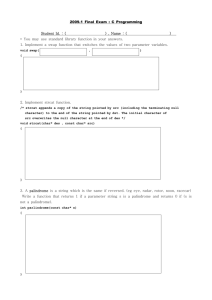
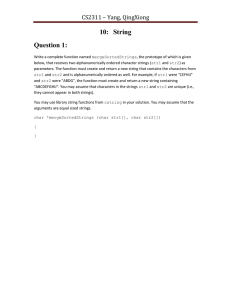
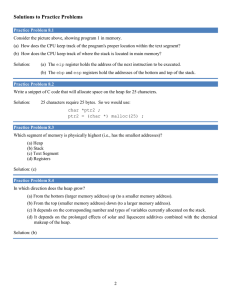
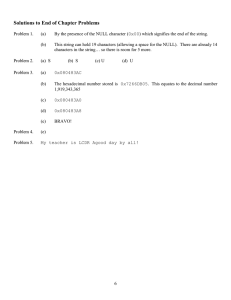
![char[] name - Purdue University](http://s3.studylib.net/store/data/009372567_1-1dcf9c35e4c7b83b043aa8c848d641be-300x300.png)
